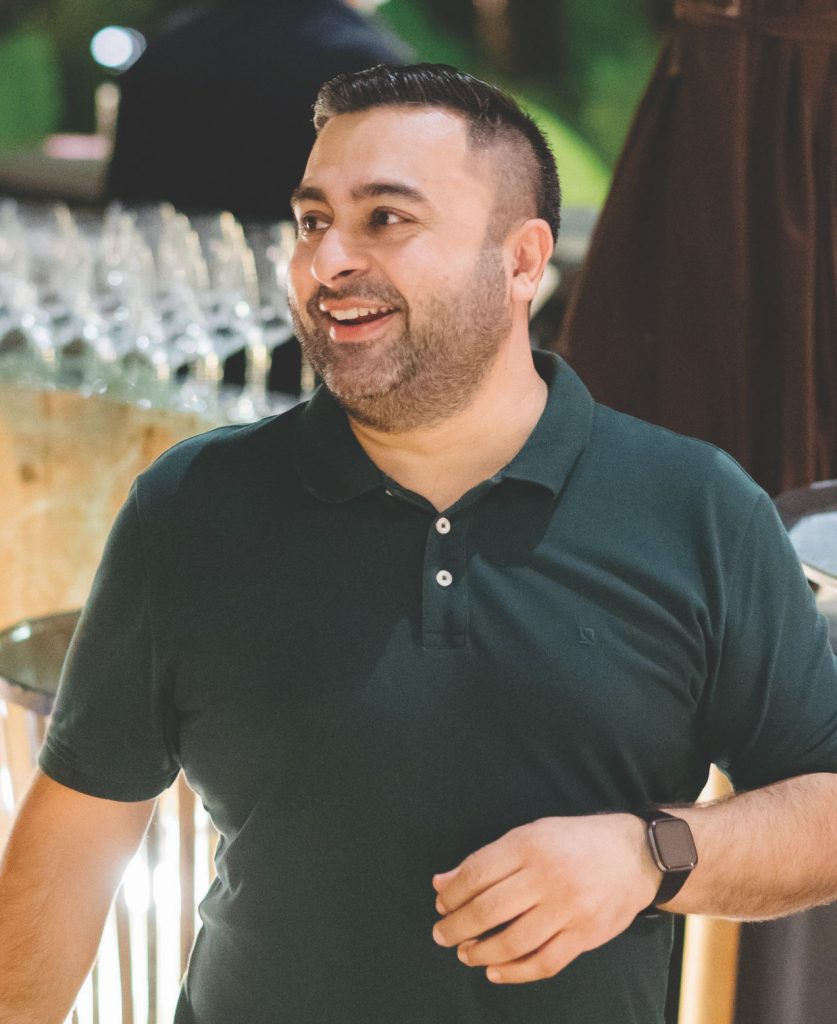Would you take a jab at it?
By the Masala Team
Thailand is expected to receive its first 200,000 doses of the SinoVac COVID-19 vaccine this month, which will go to frontline workers and communities in the five highest-controlled areas.
Another few million doses are expected to follow for those in high risk groups, while it’s expected that Siam Bioscience will have produced 26 million doses of the Oxford-AstraZeneca vaccine for the general public by mid-year.
As we’re still on the brink of having vaccine made readily available to us in comparison to countries like the United Kingdom and India that have begun inoculating their populations, we speak to six Thai-Indians about their thoughts on getting the vaccine when it arrives.
BUT FIRST, HOW DO VACCINES ACTUALLY WORK?
In order to understand the science behind vaccines, we must first look at how our bodies fight off illnesses. When germs invade our bodies, they attack and then multiply. This invasion is called an infection and is what causes illness.
Our immune systems will use several tools to fight this infection, including macrophages, white blood cells that swallow germs and dying cells; B-lymphocytes, defensive white blood cells that produce antibodies that attack the virus; and T-lymphocytes, defensive white blood cells that attack cells in the body that have been infected. The first time someone is infected with a virus, it can take time for the body to produce all the tools necessary to combat the infection. However, after an infection, the immune system remembers how to protect the body.
A vaccine helps the body develop immunity against certain viruses. Different vaccines work in different ways, but all help the body remember how to fight off viruses. That’s why after vaccination, during the process of building immunity, the body can experience symptoms such as fever and body aches.
Currently COVID-19 vaccines are grouped into three main types that have undergone/are undergoing Phase 3 clinical trials:
- mRNA vaccine: Gives our cells instructions for how to make a harmless version of a viral protein. Once the copies are made, our immune system recognises that the protein shouldn’t be there and generates a response. Our bodies then remember how to fight the virus in the future.
- Protein subunit vaccine: Contains harmless pieces of a virus instead of the whole germ. Once injected, our immune system recognises that the proteins don’t belong and learns how to fight them for the future.
- Vector vaccine: Contains a weakened version of a virus that contains genetic material from the virus that causes COVID-19. Once injected, it gives our cells instructions to make a protein, our cells then make copies of the protein to build an immune response.
JAKE GROVER, Business Owner
If a vaccine allows me to travel to help improve my business after a difficult year, and it means I won’t get infected and pass it on to elderly people around me, then without a doubt I’d take the vaccine.
In terms of preference, I would choose the Oxford-AstraZeneca vaccine. I’ve seen that it has received some good reviews so far, and I’ve also heard good things from some trustworthy sources! So personally, I’d wait for the Oxford- AstraZeneca vaccine to come to Thailand.
Regarding the vaccines, I personally wouldn’t be comfortable taking them just yet. I feel like we’re all so different when it comes to our health that there are chances that some of us may react differently to them.
I would prefer waiting for all the vaccines available globally to be tested further. Having said this, I am curious to know
more about the vaccine being produced in India, Covaxin TM by Bharat Biotech, as India has been successful throughout history when it comes to its medical unit and medical development.
As for the creation of a vaccine, I still view it as a positive action and I do support all the research and development. The initial reactions to the virus were of fear, anxiety, and panic. This has continued over the course of a year, so we are truly lucky to live in a world where the vaccine, that was first said will take years to make, has arrived in record time and scientists seem to be more driven than ever.
This makes me dwell on the thought that sometimes humans forget how capable we are and we often underestimate ourselves. When the first wave hit, none of us could have even imagined the vaccine existing in the near future. Thus, with the number of vaccines now being produced at rapid speed, I hope it will help us manage the ‘New Normal’ that we live in today.
ANIL RAMCHANDANI, Business Owner
The COVID-19 vaccines have been developed at a rapid pace, which does concern me. I would prefer not to be the first to try it, but by the time it reaches Thailand, plenty of people across the world would have taken it. This, coupled with the extensive trials performed between now and then, makes me believe that it will be safe to get vaccinated.
I will also be consulting my family doctor as to any potential side effects. The effects experienced by trial participants so far are said to be minor compared to the health risks of COVID-19 itself, which is also encouraging. I believe it’s important to get vaccinated, not only to protect ourselves but those around us too.
While I don’t really have the expertise to comment on which vaccine is better, I will be going for a vaccine with wide regulatory approval, along with high efficacy. In the end, even after I take the vaccine, I will continue wearing my mask, social distancing, and taking care not to encourage transmission of the virus. The ‘New Normal’ we’re currently experiencing will have to continue until everyone is vaccinated.
SAMIR SUKHADIA, Jeweller
As much as I would like to take the vaccine and get back to the way we were, I will not take it immediately. Having friends in the pharmaceutical industry, I know that vaccines and treatment drugs take at least three to four years before they can arrive on the market. There are so many variablessuch as underlying conditions, terminal illnesses, drug allergies, and usage in conjunction with other medications, that I would want to see how it pans out over the next 12 months.
Recently, Norway put out a statement regarding issues with COVID-19 vaccinations for the elderly. In Brazil, the government stated the SinoVac vaccine is not as effective as initially claimed. As far as brands are concerned it’s difficult to say which one to go for, as the basis on which these vaccines are developed are varied. The worst part is two new variants of the virus have emerged in a matter of months. Only time will tell how safe and effective the existing vaccines are against all variants.
BHUPI KOGHAR, Businessman
Take the vaccine now? No way! I am already in my 70s with all sorts of health complications, so please spare me the added concern.
Firstly, I am not at all confident about the results of this new vaccine that Thailand has ordered. The normal period of assessment of most vaccines till now has been a minimum of four to five years, while we are being promised over 90 percent effectiveness for the COVID-19vaccine within a year? In my opinion, it’s a little fishy and nothing short of a lot of complicated money-making schemes.
Once we are free to travel and I have gained more confidence, I will fly to India and take the vaccine produced there, as I place my maximum trust in the one created by my Bharat Mata.
ANUSHREE MALHOTRA-HANS M.D, Doctor
Having received the Moderna COVID-19 vaccine, I feel extremely grateful and privileged. I can personally vouch that neither I nor any of my medical colleagues have experienced any serious side effects. Mild malaise, fatigue and a sore arm is a small price to pay when it comes to having immunity against a virus which has taken so many lives globally.
COVID-19 can have so many serious, life threatening complications and long term effects that we do not yet fully understand. After one year of living in this pandemic, it is not the time to doubt or take the science behind this vaccine for granted. Both the Pfizer and the Moderna vaccines have passed Phase 3 of clinical trials, which determined them safe and effective against serious illness caused by COVID-19—showing 95 percent and 94.1 percent effectiveness, respectively.
This is the first vaccine of its kind, which is an exciting medical advancement for safety and efficacy—it contains no viral particles, but only mRNA (genetic material) that codes for a protein that your body will then create, attack and produce antibodies against. This mRNA and its products are then quickly broken down by the body. Due to this exciting new technology, there is no possible way to contract a COVID infection from the vaccine.
Having COVID-19 in the past can offer some natural protection or immunity, however it is uncertain how long this protection lasts and if reinfection is possible. The risk of a mild immune reaction from the vaccination including short term fever, headaches, and body aches far outweighs the risk of severe symptoms or death from contracting the virus.












